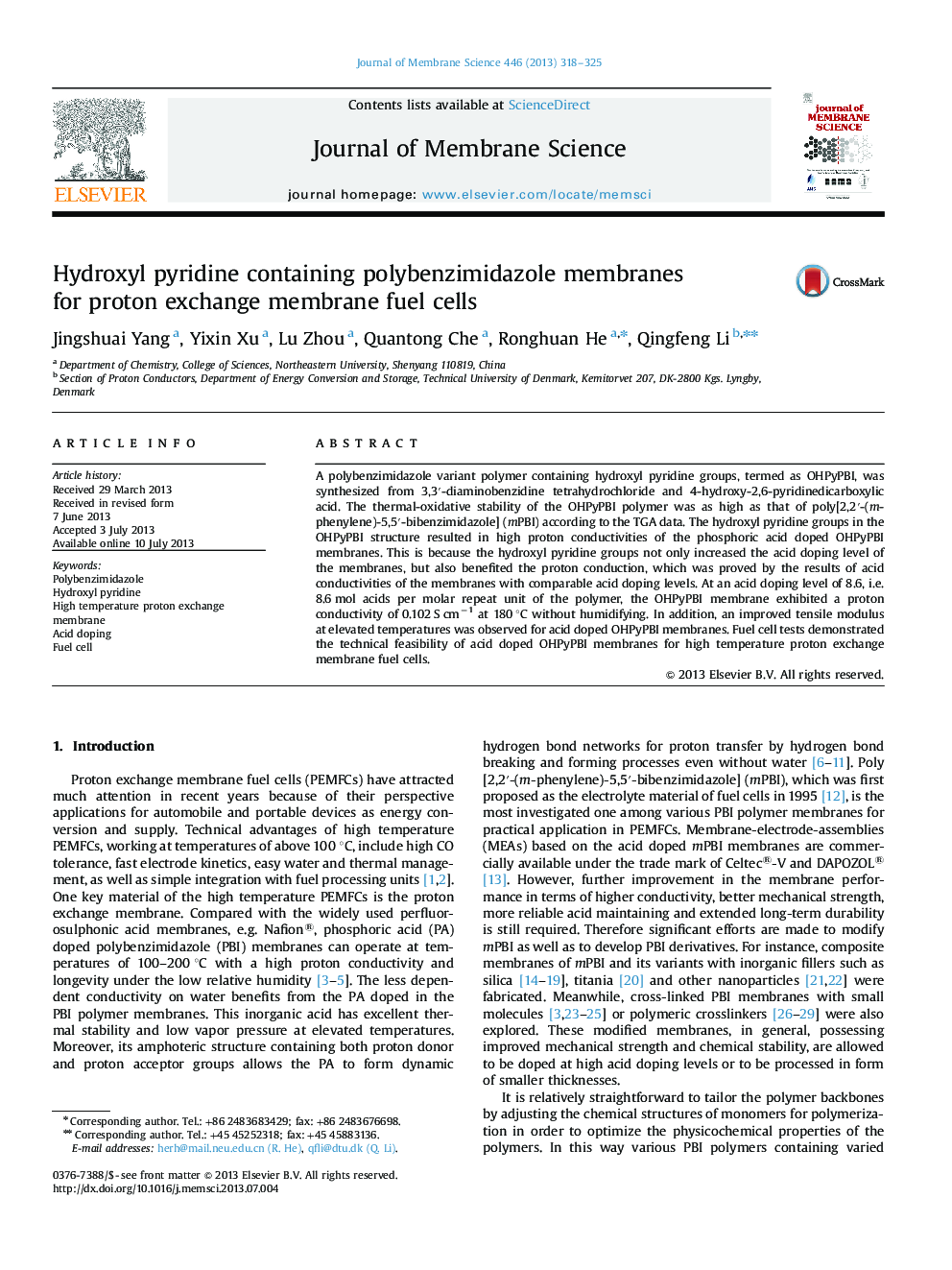| Article ID | Journal | Published Year | Pages | File Type |
|---|---|---|---|---|
| 634062 | Journal of Membrane Science | 2013 | 8 Pages |
•Preparation of hydroxyl pyridine containing high temperature polymer.•Hydroxyl pyridine groups benefit the proton conduction.•Improved tensile modulus of the membranes at elevated temperatures.•Improved performance of the obtained membranes comparing with mPBI.
A polybenzimidazole variant polymer containing hydroxyl pyridine groups, termed as OHPyPBI, was synthesized from 3,3′-diaminobenzidine tetrahydrochloride and 4-hydroxy-2,6-pyridinedicarboxylic acid. The thermal-oxidative stability of the OHPyPBI polymer was as high as that of poly[2,2′-(m-phenylene)-5,5′-bibenzimidazole] (mPBI) according to the TGA data. The hydroxyl pyridine groups in the OHPyPBI structure resulted in high proton conductivities of the phosphoric acid doped OHPyPBI membranes. This is because the hydroxyl pyridine groups not only increased the acid doping level of the membranes, but also benefited the proton conduction, which was proved by the results of acid conductivities of the membranes with comparable acid doping levels. At an acid doping level of 8.6, i.e. 8.6 mol acids per molar repeat unit of the polymer, the OHPyPBI membrane exhibited a proton conductivity of 0.102 S cm−1 at 180 °C without humidifying. In addition, an improved tensile modulus at elevated temperatures was observed for acid doped OHPyPBI membranes. Fuel cell tests demonstrated the technical feasibility of acid doped OHPyPBI membranes for high temperature proton exchange membrane fuel cells.
